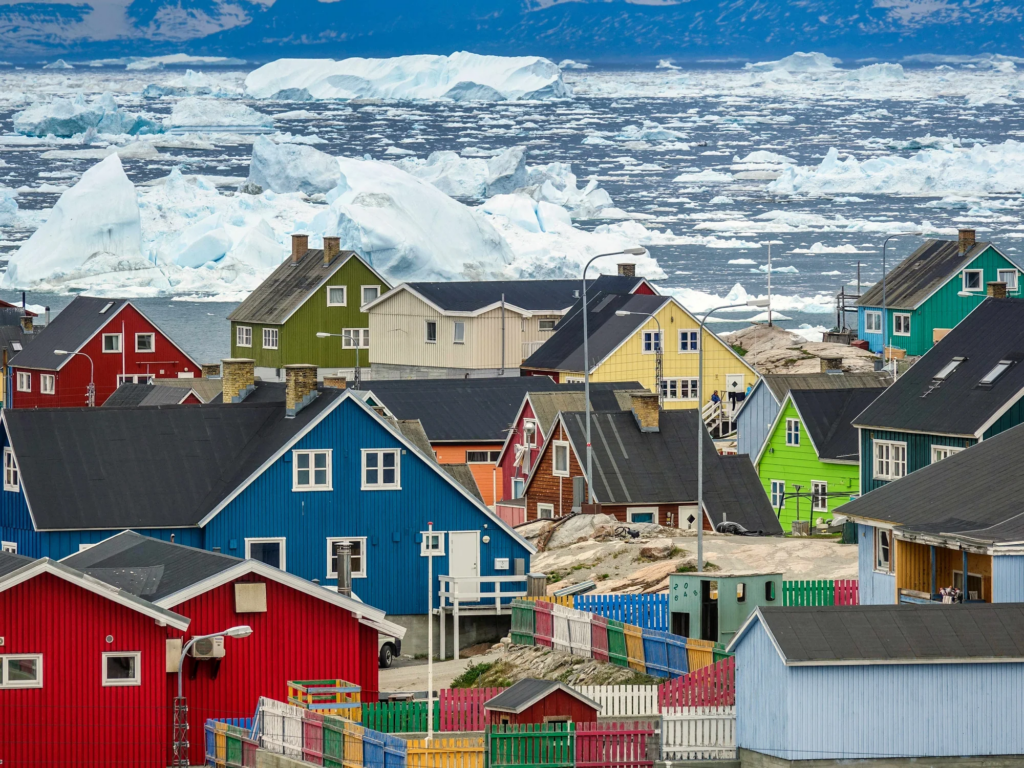Does Trump’s Greenland Remarks Spark Concern?
Denmark’s government has signaled readiness for dialogue with the United States regarding Arctic cooperation. The statement comes after U.S. President-elect Donald Trump suggested military intervention could be an option for securing American interests in Greenland. Danish officials emphasize that such discussions must respect Greenland’s autonomy and international law.

Trump’s Controversial Statements
On Tuesday, President-elect Trump refused to rule out the possibility of military action in the Arctic and Panama Canal regions. Trump reiterated his long-standing interest in Greenland, an autonomous territory within the Danish Realm. His remarks reignited debates over U.S. ambitions in strategically vital areas.
“America must protect its interests, whether in Panama or Greenland,” Trump said during a press briefing. “We will explore all options.”
These comments coincided with a private visit by Donald Trump Jr. to Greenland. Although no official agenda was disclosed, the timing has fueled speculation about the visit’s purpose.
Danish Response: Cooperation Over Confrontation
Danish Foreign Minister Lars Løkke Rasmussen addressed the growing concerns on Wednesday. He emphasized Denmark’s commitment to peaceful dialogue and collaboration with the U.S.
“The Danish Realm, which includes Greenland and the Faroe Islands, remains open to discussions,” Rasmussen said. “We seek to work closely with our allies to ensure mutual goals are met, particularly in the Arctic.”
Rasmussen noted the importance of maintaining Greenland’s autonomy while fostering stronger ties with the U.S. He underscored that Denmark values its alliance with the United States but insisted that cooperation must adhere to international agreements.

Greenland’s Geopolitical Importance
Greenland, the world’s largest island, holds immense strategic value due to its location and resources. Its Arctic position makes it a key player in global shipping routes and military operations. The island also contains valuable mineral deposits, including rare earth elements critical to modern technology.
The U.S. has long maintained a military presence in Greenland through Thule Air Base, a critical radar and missile defense facility. Trump’s administration has repeatedly highlighted Greenland’s significance for national security and global strategy.
Greenland’s Premier, Múte Bourup Egede, has called for respect for Greenland’s self-rule. “We will not compromise our autonomy or our people’s wishes,” he said in a separate statement.
Historical Context: U.S. Interest in Greenland
American interest in Greenland is not new. In 1946, President Harry Truman offered $100 million to purchase the island from Denmark, an offer that was declined. More recently, Trump made headlines in 2019 when he proposed buying Greenland, describing it as a “large real estate deal.”
The suggestion was met with widespread criticism in Denmark and Greenland. Danish Prime Minister Mette Frederiksen famously called the idea “absurd.” Trump’s renewed focus on Greenland has rekindled memories of that episode, raising concerns about U.S. intentions.

Arctic Tensions Escalate
The Arctic region has become a focal point for geopolitical competition as ice melts due to climate change, opening new shipping routes and resource opportunities. Russia, China, and the U.S. have intensified their activities in the region, raising fears of militarization and disputes.
Denmark, as a key Arctic stakeholder, has sought to balance cooperation with allies and protecting its sovereignty. Rasmussen emphasized Denmark’s role in ensuring peace and stability in the Arctic.
“We must approach the Arctic with a shared commitment to dialogue and sustainable development,” Rasmussen said. “Denmark will work to ensure that no nation undermines this principle.”

What’s Next?
Trump’s comments have prompted calls for clarity from the incoming administration regarding its Arctic policy. Experts suggest that Denmark and the U.S. may explore new agreements to address mutual concerns while safeguarding Greenland’s autonomy.
Analysts warn that aggressive rhetoric could backfire, potentially pushing Arctic stakeholders closer to other powers like China or Russia.
“Greenland is not just a piece of land; it’s a symbol of autonomy and a gateway to the Arctic,” said Dr. Ingrid Sorensen, a Nordic affairs expert. “Any attempt to undermine that autonomy risks creating a rift between allies.”
Denmark’s openness to dialogue with the U.S. reflects its pragmatic approach to safeguarding Arctic stability. As tensions rise, the outcome of these discussions will shape not only Denmark-U.S. relations but also the broader geopolitical landscape in the Arctic.
Greenland, at the heart of this debate, continues to assert its right to self-determination. Whether cooperation or confrontation prevails remains to be seen.
Our Visitor






 Users Today : 72
Users Today : 72


